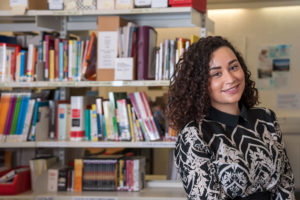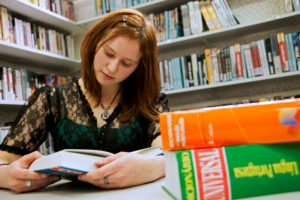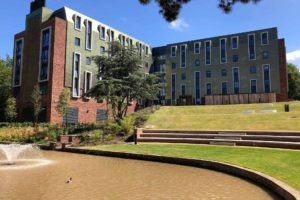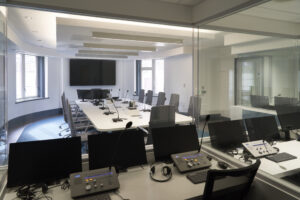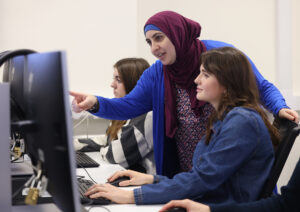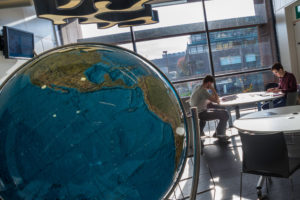How you'll learn
You will be taught in a mixture of formal lectures, seminars and small group tutorials where a friendly environment prevails and great attention is paid to giving feedback on assessed work.
In language classes, we make every effort to ensure that we have a small number of students compared to competitor institutions, which means that academic staff are able to support students to achieve their full potential. All language modules involve continuous assessment such as oral presentations, listening tests and grammar tests as well as exams. Tuition takes place in small groups with first-language speakers playing a prominent part and includes a range of skills such as listening, writing, speaking, interpreting and translation.
Students are also expected to make regular use of our fully-refurbished Language Lounge to enhance their own study. We encourage our students to become independent learners, and support them through our dedicated library resources in the Sydney Jones Library which is open 24-hour in term time. We also make extensive use of our virtual learning environment VITAL where students can complete structured tasks outside the classroom.
How you're assessed
Performance throughout the year is carefully monitored and used to supplement examinations. For language, such a programme of continuous assessment involves evaluating performance in a variety of written and oral exercises. Other modules have a mix of essay and exam assessment. Our aim is always to assess by methods of evaluation appropriate to the skills being developed and to allow students to gain credit for good work done during the year.
Exams take place at two points in the academic year: at the end of semester one in January and at the end of the session in May, so that the workload is evenly distributed. As regards the final degree result, for language programmes, the second year’s work counts for 20%, the work done during the year abroad (foreign exams or extended essay or portfolio) counts for another 10%, and the final year’s work counts for 70%.
Liverpool Hallmarks
We have a distinctive approach to education, the Liverpool Curriculum Framework, which focuses on research-connected teaching, active learning, and authentic assessment to ensure our students graduate as digitally fluent and confident global citizens.
The Liverpool Curriculum framework sets out our distinctive approach to education. Our teaching staff support our students to develop academic knowledge, skills, and understanding alongside our graduate attributes:
- Digital fluency
- Confidence
- Global citizenship
Our curriculum is characterised by the three Liverpool Hallmarks:
- Research-connected teaching
- Active learning
- Authentic assessment
All this is underpinned by our core value of inclusivity and commitment to providing a curriculum that is accessible to all students.

